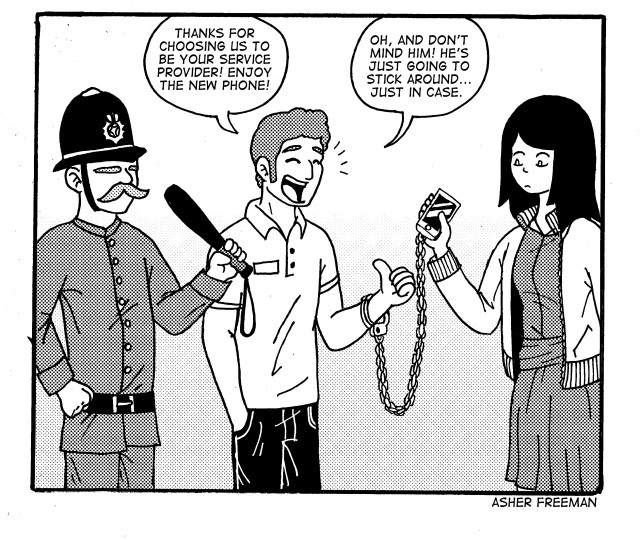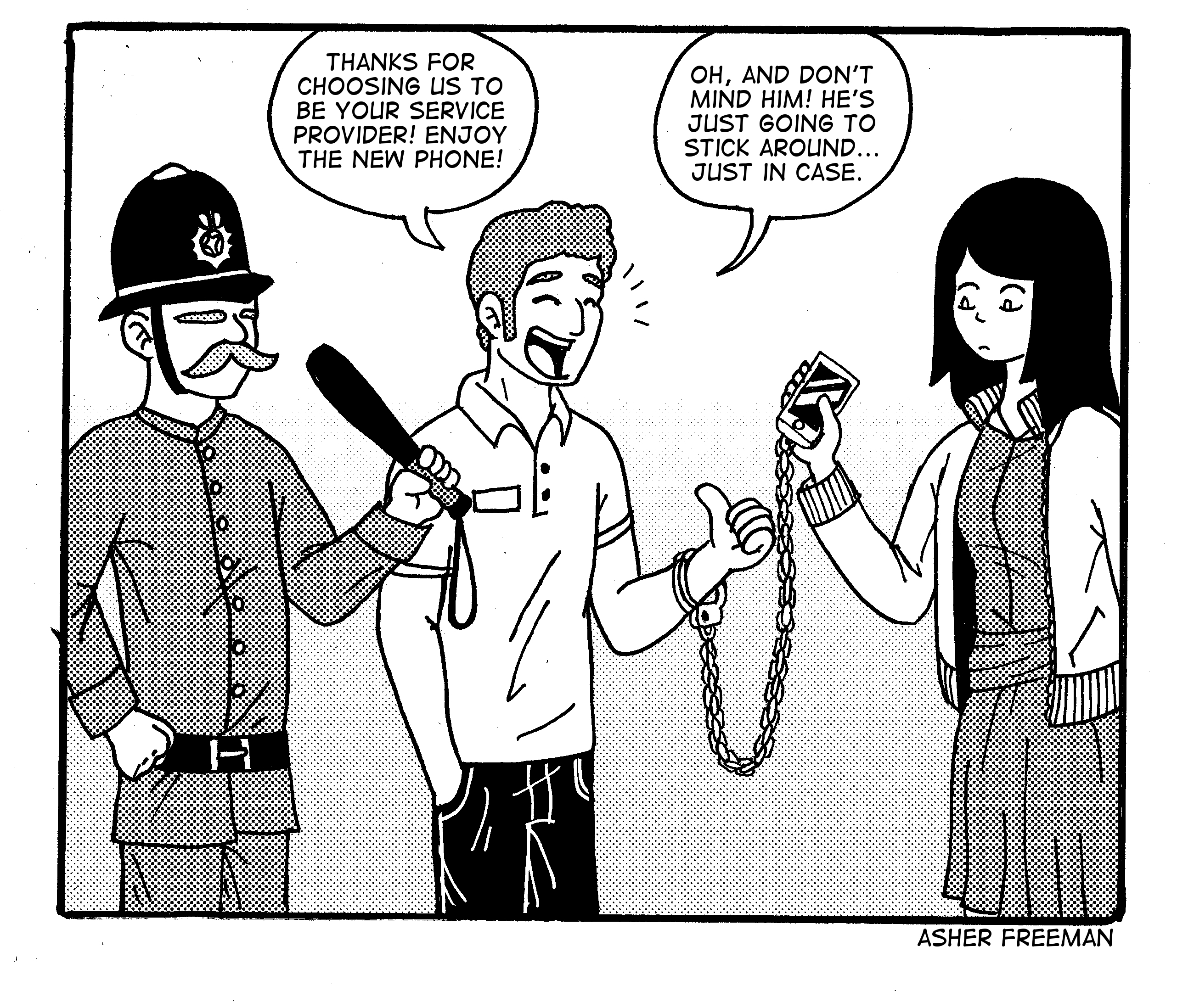 When you purchase something, it becomes yours. You own it, and you should be able to do with it what you wish.
When you purchase something, it becomes yours. You own it, and you should be able to do with it what you wish.
This sounds pretty simple, but the government is struggling with this concept.
The law of the land in the United States says that unlocking your cell phone is illegal. This means that a phone purchased from, say, Verizon cannot be unlocked and used on AT&T’s network.
For the consumer, this is bad news. If you like your shiny new iPhone 5 that you purchased from one service provider, then you’ll have to spend another grotesque amount of money to purchase the exact same phone if you want to switch carriers.
You used to be able to download software to let your phone work on different carriers. If technology isn’t your thing, then you could just take your phone to a kiosk in the mall and they could do it for you for a fee before the law was passed in October.
Individual violators of the law, if prosecuted, will face a fine of up to $2,500. For those who provide unlocking services, the fine increases to up to $500,000.
The intent here is to protect the copyrights that cell phone companies have worked for, which is a noble cause. Unfortunately, the one suffering is the customer. The unintended consequences of this law are far-reaching and the law needs to be overturned.
Consumers have hope, however.
Our cell phone savior is Sina Khanifar. Formerly a cell phone unlocker by trade, he started a petition on whitehouse.gov urging the government to create legislation to make unlocking cell phones legal after he received a cease-and-desist letter from Motorola. He also has a lawsuit pending in court.
Like any good citizen, Khanifar started his petition to try and make a difference.
His petition has reached the 100,000-signature threshold, and the White House will address the issue.
According to the petition, under the current law “consumers will be forced to pay exorbitant roaming fees to make calls while traveling abroad. It reduces consumer choice, and decreases the resale value of devices that consumers have paid for in full.”
Khanifar is right. The current law needs to be rescinded. If someone purchases a product, then that person should be free to use that product as they see fit (so long as they aren’t breaking other laws).
This law is just another boxcar in the train of senseless laws governing technology that the government ultimately just doesn’t understand.
It was only a little over a year ago that the Protect IP Act and the Stop Online Piracy Act, more commonly known as PIPA and SOPA, were introduced to the House of Representatives.
Both bills were intended to protect the copyright of people who put their works online. In theory, this sounds noble and right, but in practice, it just shows that the government doesn’t understand the technology that it tries to regulate.
If these bills had passed, websites such as Wikipedia and YouTube would have had to shut down because they feature user-generated content that lawmakers argued violated copyright laws.
Americans are changing the way they think about copyright laws, especially as the laws pertain to technology, and the government has not been able to keep up with the changing American view.
Fortunately, the will of the people has prevailed in many cases thus far, but it has only been because of our collective loud voice.
Be sure to stay informed. If the White House doesn’t respond the way that the people would like it to, then it’s up to us to put pressure on lawmakers to change this policy that prevents us from fully possessing the things we own.






